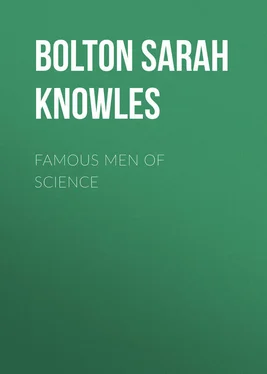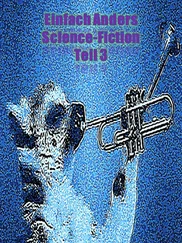Sarah Bolton - Famous Men of Science
Здесь есть возможность читать онлайн «Sarah Bolton - Famous Men of Science» — ознакомительный отрывок электронной книги совершенно бесплатно, а после прочтения отрывка купить полную версию. В некоторых случаях можно слушать аудио, скачать через торрент в формате fb2 и присутствует краткое содержание. ISBN: , Жанр: foreign_language, foreign_antique, foreign_prose, Биографии и Мемуары, на английском языке. Описание произведения, (предисловие) а так же отзывы посетителей доступны на портале библиотеки ЛибКат.
- Название:Famous Men of Science
- Автор:
- Жанр:
- Год:неизвестен
- ISBN:http://www.gutenberg.org/ebooks/35489
- Рейтинг книги:3 / 5. Голосов: 1
-
Избранное:Добавить в избранное
- Отзывы:
-
Ваша оценка:
- 60
- 1
- 2
- 3
- 4
- 5
Famous Men of Science: краткое содержание, описание и аннотация
Предлагаем к чтению аннотацию, описание, краткое содержание или предисловие (зависит от того, что написал сам автор книги «Famous Men of Science»). Если вы не нашли необходимую информацию о книге — напишите в комментариях, мы постараемся отыскать её.
Famous Men of Science — читать онлайн ознакомительный отрывок
Ниже представлен текст книги, разбитый по страницам. Система сохранения места последней прочитанной страницы, позволяет с удобством читать онлайн бесплатно книгу «Famous Men of Science», без необходимости каждый раз заново искать на чём Вы остановились. Поставьте закладку, и сможете в любой момент перейти на страницу, на которой закончили чтение.
Интервал:
Закладка:
He was now, at twenty-seven, spoken of as a man of "unparalleled genius." He had discovered the compound nature of white light, the attraction of gravity, fluxions, and made the first reflecting telescope ever directed toward the heavens, though one had been invented previously, by James Gregory, of Aberdeen. The boy who had thought of a mouse to turn his windmill had thought out some of the sublimest things in nature, and was henceforward to rank as one of the few masterminds of science. Newton's doctrine of colors met with the most bitter opposition. At last, he became so tired of the controversy, that he wrote Leibnitz, "I was so persecuted with discussions arising out of my theory of light, that I blamed my own imprudence for parting with so substantial a blessing as my quiet to run after a shadow." To another he wrote, "I see I have made myself a slave to philosophy; but if I get free of Mr. Linus's business, I will resolutely bid adieu to it eternally, excepting what I do for my private satisfaction, or leave to come out after me; for I see a man must either resolve to put out nothing new, or to become a slave to defend it."
Newton was also troubled pecuniarily at this time, and asked to be excused from the weekly payments to the Royal Society, thereby resigning his membership. He even meditated the study of law, as his income was so limited. Strange that so many of the great things of this life are wrought out by those who are in sorrow or privation.
But amid all the opposition to his discoveries and his poverty, the unparalleled devotion to study was continued. When he was weary of other branches, he said "he refreshed himself with history and chronology." Years afterward he published the "Chronology of Ancient Kingdoms amended, to which is prefixed a short chronicle, from the first memory of things in Europe, to the Conquest of Persia, by Alexander the Great." Says a gentleman who was with him for years, "I never knew him to take any recreation or pastime, either in riding out to take the air, walking, boating, or any other exercise whatever, thinking all hours lost that were not spent in his studies, to which he kept so close that he seldom left his chamber except at term time, when he read in the schools, as being Lucasianus Professor, where so few went to hear him, and fewer that understood him, that oftentimes he did in a manner, for want of hearers, read to the walls…
"So intent, so serious upon his studies that he ate very sparingly, nay, ofttimes he has forgot to eat at all, so that, going into his chamber, I have found his mess untouched, of which when I have reminded him he would reply, 'Have I?' and then making to the table, would eat a bit or two standing, for I cannot say I ever saw him sit at table by himself. At some seldom entertainments the masters of colleges were chiefly his guests.
"He very rarely went to bed till two or three of the clock, sometimes not till five or six, lying about four or five hours, especially at spring and fall of the leaf, at which times he used to employ about six weeks in his elaboratory, the fire scarcely going out either night or day, he sitting up one night, and I another, till he had finished his chemical experiments, in the performances of which he was the most accurate, strict, exact…"
When his most intense studies were carried on, "he learned to go to bed at twelve, finding by experience that if he exceeded that hour but a little, it did him more harm in his health than a whole day's study."
"He very rarely went to dine in the hall, except on some public days, and then if he has not been minded, would go very carelessly, with shoes down at heels, stockings untied, surplice on, and his head scarcely combed… At some seldom times when he designed to dine in the hall, he would turn to the left hand and go out into the street, when making a stop when he found his mistake, would hastily turn back, and then sometimes, instead of going into the hall, would return to his chamber again… In his chamber he walked so very much that you might have thought him to be educated at Athens, among the Aristotelian sect."
So absent-minded was he, the story is told of him, that going home to Colsterworth, he led his horse up a hill. When he designed to remount, the animal had slipped the bridle and gone away unperceived, though Newton held the bridle in his hand all the time. He would often sit down on his bedside after he rose, and remain there for hours without dressing, so completely absorbed was he in his thought. How few in all this world have been so devoted to science! And yet how many expect success without this devotion!
The same gentleman writes of Newton, "His carriage was very meek, sedate, and humble, never seemingly angry, of profound thought, his countenance mild, pleasant, and comely. I cannot say I ever saw him laugh but once."
In 1687, when Newton was forty-five, his Philosophiæ Naturalis Principia Mathematica was published. "The Principia consists of three books. The First Book, besides the definition and axioms, or laws of motion, with which it begins, consists of fourteen sections, in the first of which the author explains the method of prime and ultimate ratios used in his investigations, and which is similar to the method of fluxions. The other sections treat of centripetal forces, and motions in fixed and movable orbits.
"The Second Book consists of nine sections, and treats of bodies moving in resisting media, or oscillating as pendulums.
"The Third Book consists of five sections, on the Causes of the System of the World, on the Quantity of Lunar Errors, on the Quantity of the Tides, on the Precession of the Equinoxes, and on Comets."
The great principle of the Principia is universal gravitation, "That every particle of matter in the universe is attracted by or gravitates to every other particle of matter, with a force inversely proportional to the squares of their distances." By the laws of gravity, Newton was enabled to calculate the quantity of matter in the sun, and in all the planets, and even to determine their density, results which Adam Smith said "were above the reach of human reason and experience." He ascertained that the weight of the same body would be twenty-three times greater at the surface of the sun than at the surface of the earth, and that the density of the earth was four times greater than that of the sun. He found the true figure of the earth; he explained the phenomena of the tides.
Of the "Principia," Sir David Brewster says, in his able life of Sir Isaac Newton, it is "a work which will be memorable not only in the annals of one science or of one country, but which will form an epoch in the history of the world, and will ever be regarded as the brightest page in the records of human reason, – a work, may we not add, which would be read with delight in every planet of our system, – in every system of the universe. What a glorious privilege was it to have been the author of the 'Principia'!
"There was but one earth upon whose form, and tides, and movements, the philosopher could exercise his genius, – one moon whose perturbations and inequalities and actions he could study, – one sun whose controlling force and apparent motions he could calculate and determine, – one system of planets whose mutual disturbances could tax his highest reason, – one system of comets whose eccentric paths he could explore and rectify, – and one universe of stars to whose binary and multiple combinations he could extend the law of terrestrial gravity.
"To have been the chosen sage summoned to the study of that earth, these systems, and that universe, the favored lawgiver to worlds unnumbered, the high priest in the temple of boundless space, – was a privilege that could be granted but one member of the human family; – and to have executed the last was an achievement which, in its magnitude, can be measured only by the infinite in space, and in the duration of its triumphs by the infinite in time. That sage, – that lawgiver, – that high priest was Newton."
Читать дальшеИнтервал:
Закладка:
Похожие книги на «Famous Men of Science»
Представляем Вашему вниманию похожие книги на «Famous Men of Science» списком для выбора. Мы отобрали схожую по названию и смыслу литературу в надежде предоставить читателям больше вариантов отыскать новые, интересные, ещё непрочитанные произведения.
Обсуждение, отзывы о книге «Famous Men of Science» и просто собственные мнения читателей. Оставьте ваши комментарии, напишите, что Вы думаете о произведении, его смысле или главных героях. Укажите что конкретно понравилось, а что нет, и почему Вы так считаете.












